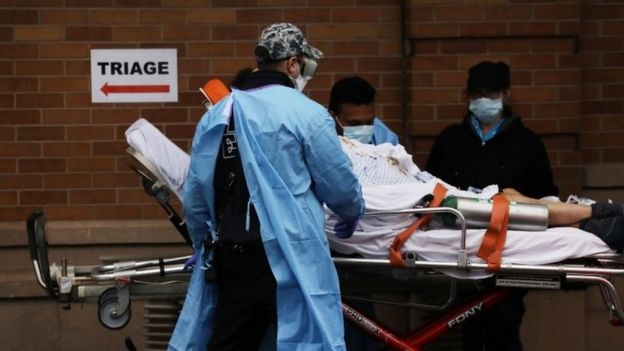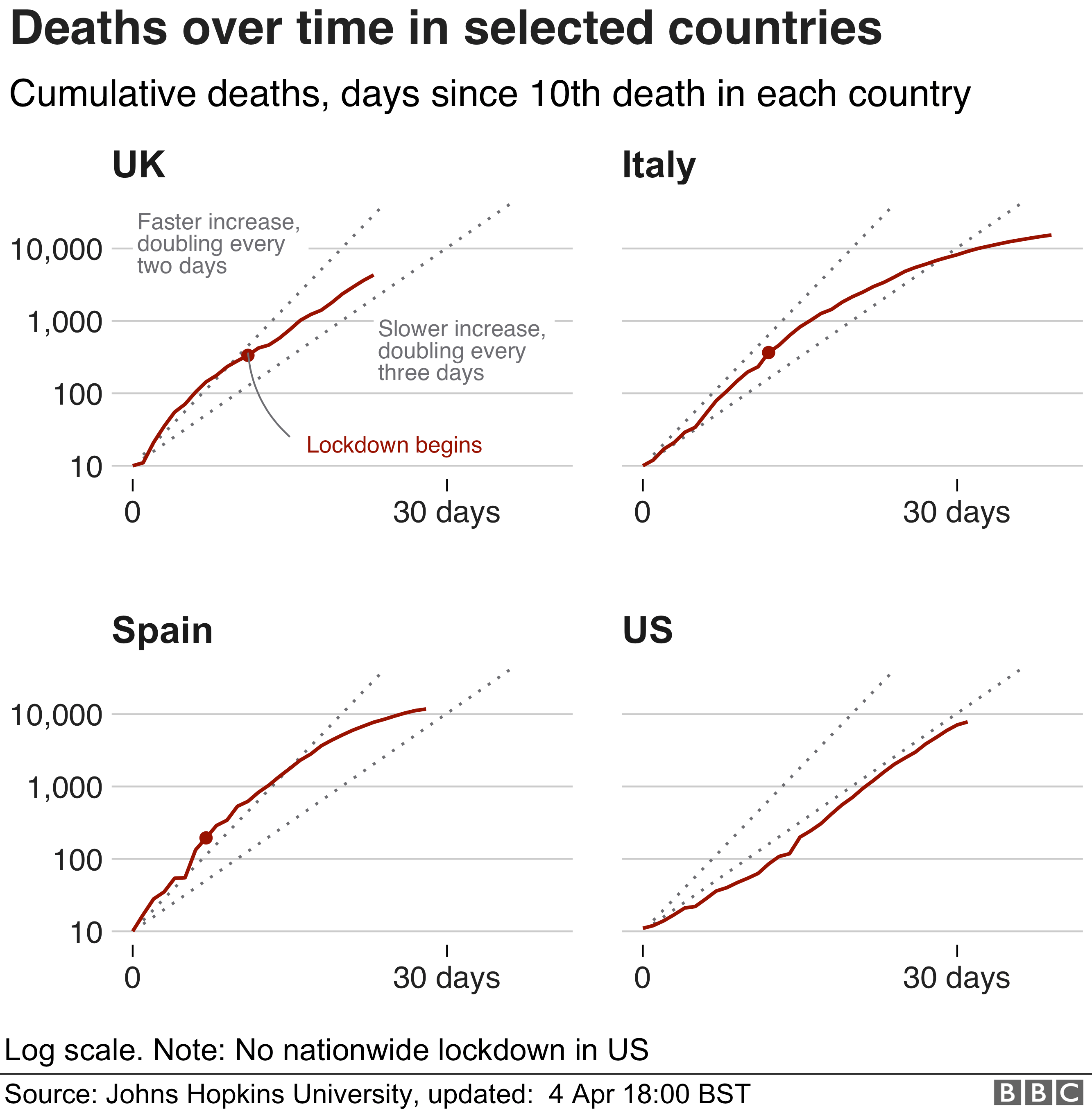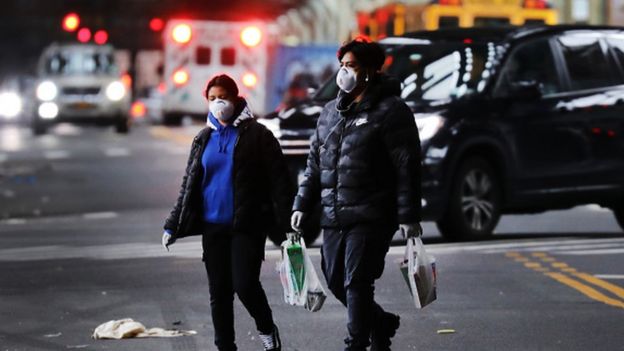
This article is more than
5 year oldAt his daily briefing, Mr Trump said "there will be death" in a grim assessment of the days ahead.
He sought to reassure the worst-hit states, promising medical supplies and military personnel to combat the virus.
But in contrast to his warning, Mr Trump suggested easing social-distancing guidelines for Easter.
"We have to open our country again," Mr Trump told a news conference at the White House on Saturday. "We don't want to be doing this for months and months and months."
Mr Trump's calls to relax restrictions came on the day confirmed coronavirus infections in the US surpassed 300,000, the highest number in the world.
As of Saturday, there were almost 8,500 deaths from Covid-19 in the US, with most in New York state.
New York state recorded 630 more deaths, another daily record that takes its toll to 3,565. The state now has almost as many cases - more than 113,000 - as the whole of Italy, one of the countries worst-hit by coronavirus.

New York City hospitals have reported equipment shortages |
President Trump gave a candid assessment of what lies ahead for the US in the coming weeks.
"This will be probably the toughest week between this week and next week, and there will be a lot of death, unfortunately, but a lot less death than if this wasn't done," Mr Trump said.
To support states, Mr Trump said his administration would be deploying a "tremendous amount of military, thousands of soldiers, medical workers, professionals".
The military personnel will "soon" be advised of their assignments, he said, adding that "1,000 military personnel" were being deployed to New York City.
Mr Trump also addressed his use of the Defence Production Act, a Korean-War-era law that gives him powers to control the production and supply of US-made medical products.
He said he was "very disappointed" with 3M, a US company that makes face masks, saying it "should be taking care of our country" instead of selling to others.
But he rejected accusations that the US had committed an act of "modern piracy" by redirecting 200,000 Germany-bound masks for its own use.
On the question of easing social-distancing restrictions, Mr Trump reiterated a familiar theme.
"The cure cannot be worse than the problem itself," Mr Trump said, expressing hope that rules could be relaxed over Easter.
Analysis by Peter Bowes, BBC North America correspondent
By returning to the theme that "the cure cannot be worse than the problem", President Trump again revealed his frustration that America is still at a standstill.
Mr Trump has repeatedly expressed his desire to get people out of their homes and back to work.
While opining that the virus had to be vanquished quickly, Mr Trump restated his view that more people could die because of measures being taken to mitigate the impact of Covid-19, than the disease itself.
He warned that some hard decisions had to be made. "We cannot let this continue," he added, referring to nation's stagnation. "We're not going to destroy our country."
 |
The state has counted 113,074 confirmed cases, 63,036 of them in New York City.
State Governor Andrew Cuomo said infections could peak in between four and 14 days.
Mr Cuomo said the numbers of cases and deaths were now rising at a slower rate in New York City, but there was a worrying increase in cases in nearby Long Island.
Meanwhile a new overflow hospital - the 2,500-bed Javits Center in Manhattan - would be staffed and equipped by the federal government, he said.
Some 85,000 people, about a quarter of them from other states, have signed up to help tackle the outbreak in New York, the worst in the US.

New York state is the epicentre of the coronavirus crisis in the US |
New York City's mayor has sent messages to its eight million inhabitants urging qualified healthcare workers to volunteer.
"Anyone who's not already in this fight, we need you," said Bill de Blasio, appealing for help from "any health care professional: Doctor, nurse, respiratory therapist, you name it".